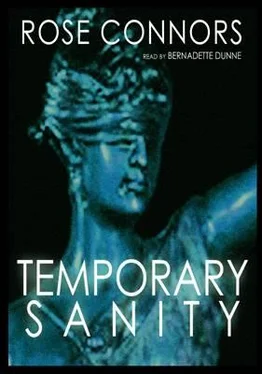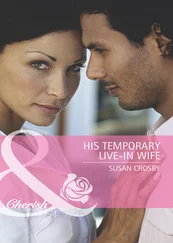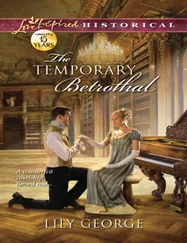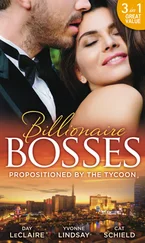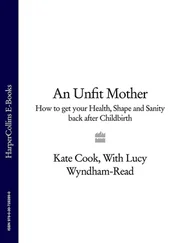Harry’s not very veiled threats gave Beatrice Nolan pause. If there’s one thing that matters to Beatrice, it’s her standing with the courts of appeal-her reversal rate. She may have ice water in her veins, but it seems to keep her brain fueled. She is careful with her evidentiary rulings, meticulous in her written opinions. Technically, at least, she’s usually correct.
There’s also the Jailhouse incident, of course. Probably best, from Beatrice’s perspective, not to memorialize it in a published appellate opinion.
In the end, Beatrice dismissed the extra court officers and settled for giving Harry a lecture. This was his final warning, she said. He was skating on mighty thin ice. Harry did his best to feign concern. When Beatrice is on the bench, Harry is lucky to have any ice at all.
Stanley’s cross-examination of Dr. Simmons was by the book. Stanley scored a few points, but he lost a few too. This doctor has been cross-examined before. He’s pretty good at it.
Harry’s redirect was brief. He just wrapped it up, a few minutes past four.
Judge Nolan excuses Dr. Simmons and he heads for the side door, keeping his eyes at all times on the judge. Good instincts.
All in all, it was a decent day for the defense. The expert witnesses basically canceled each other out. One side’s experts said Buck knew what he was doing; the other side’s said he didn’t. This is usually the way it plays out in insanity cases. The jurors will probably disregard all of the psychiatric testimony. They will decide Buck’s fate based on other factors, and hang their hats on the insanity plea only if necessary.
Harry is packing up his day’s trial notes. He uses an old school bag to cart his files back and forth to the courthouse and he has it open on our table, filling it with folders and notebooks. I give him an elbow. When he looks up at me, I move my eyes to the judge. She’s glaring at him.
Harry looks at Beatrice, then back at me. I shrug. I don’t have any idea what she’s mad about now.
“What are you doing, Mr. Madigan?” Beatrice leans forward on the bench and folds her hands together, as if praying for patience.
“Packing up?” Harry looks down at his schoolbag, checking to make sure he’s not doing something criminal instead.
“And why would you be packing up, Mr. Madigan?” Beatrice enunciates each word carefully again. Apparently, I’m not the only dull-witted child in the room.
Harry looks at me and I shrug again. He leans back in his chair and puts his hands behind his head, elbows pointed out. He stares up at Beatrice, waiting for her to identify his misstep. This is a new twist. Normally, Harry knows why he’s in trouble.
“This courtroom adjourns at five-thirty, Mr. Madigan, not a moment sooner.”
This is a woman with no plans for the evening. Her message is clear: She calls the shots now. We’re not in Judge Leon Long’s courtroom anymore.
“Call your next witness,” she says.
Our next witness is Patty Hammond, but I had planned to call her in the morning. I don’t want to call her now. I need to walk her through the testimony one more time before she takes the stand. Aside from Buck, she’s our most important witness. She shouldn’t be called so abruptly; she shouldn’t be rattled.
Stanley wheels around in his chair and stares at me, a savage glee in his eyes. He knows I’m sweating.
I’m searching the recesses of my brain for a reason to delay, one old Beatrice will at least consider, when I feel a hand on my arm. It’s Patty, on her feet and leaning over from the front row. “It’s okay,” she says, her eyes dry, her voice calm. “I’m ready.”
The room is silent while Patty Hammond makes the short trip from the front row to the witness box. She’s wearing black slacks and heels, a white turtleneck and an oversized gray sweater. Small coral starfish rest on her earlobes, and a pewter locket hangs from a chain around her neck. Her short hair is brushed back, away from her face. She has a fresh-scrubbed look-fair skin with a few freckles, no makeup.
Patty takes the oath, then perches on the edge of the witness seat, as if she doesn’t plan to stay long. She faces the jurors and nods, then turns to me and folds her hands on her lap. Her gaze is steady. She looks sad, as always, but at ease. She really is ready.
We walk through the preliminaries smoothly. She is Patricia Lowell Hammond and she lives on Bayview Road in South Chatham. She was born and raised here on the Cape. She is the wife of the accused and the mother of the deceased. The deceased child, that is. “Billy,” she tells them, fingering her locket. “His name is Billy.”
All of the women on the panel nod at Patty, then most of the men do too. The boy’s name is important; he’s real. They understand that. Finally, a genuine reaction.
I have always been of two minds about Patty Hammond’s testimony. On the one hand, I want to prolong it, keep her on the stand as long as possible so the jurors can get to know her. I want them to witness her unassuming manner, to listen at length to her understated words. I want them to appreciate her gentle nature, still intact in spite of the grief. I want them to realize she owns the wisdom of those who have suffered too much.
In short, I want these jurors to care so deeply about Patty Hammond that they will be unable to subtract her husband from her world, a world already diminished.
On the other hand, I know that Patty’s composure is fragile. And she needs to be clear when she tells the jury about the hours before and after the shooting. She needs to be certain about what Buck did-and didn’t-say. She needs to be strong when she faces Stanley’s cross-examination. And Stanley, though he’ll undoubtedly handle her carefully, will be gunning for her.
Better to get to the heart of the matter.
“Let’s start on Sunday, Patty, June twentieth, the day after Billy disappeared.”
She nods.
“Where were you that Sunday evening?”
“Home,” she says. “Sitting at the kitchen table. I’d been there since…” Patty swallows, groping for words. “Since it happened.”
“Doing what?”
She shrugs. “Staring at the phone.”
“And your husband?”
“Searching. He’d been searching for Billy since the police left the day before. They told him not to, but Buck couldn’t bear the wait. He couldn’t eat or sleep, couldn’t even sit down. He had to go, had to try. He came home around nine on Sunday evening, for just a few minutes. Then he left again, to search some more.”
“Did you hear from your husband later that night?”
Patty nods again. “Twice. He called first around midnight to ask if I’d heard from the police.”
“Had you?”
She shakes her head. “No.”
“He called again after that?”
“Yes,” she says. “At one-thirty.”
“One-thirty Monday morning?”
“Yes.”
“You’re certain of the time?”
“I am.” Patty turns to the panel. “I looked at the clock as I picked up the phone. When I checked again, the minute hand had barely moved.” She shakes her head at the jurors. “It seemed like hours had passed.”
“What did Buck tell you during that call? The second one.”
Patty swallows and cups each hand around the opposite elbow, pressing her arms against her stomach. These aren’t the most difficult questions, but we’re moving in that direction. She’s bracing.
“He was at the station, the Chatham Police Station. He said he didn’t want to keep searching blindly. There are so many desolate places here on the Cape, so many barren stretches where a man with a kidnapped child could avoid being seen. Buck said he was looking for direction, a lead. He’d driven back into town to ask the police for an update. He was hoping they’d unearthed some clue-anything. He said he needed to look someone in the eye, to ask his questions in person.”
Читать дальше
